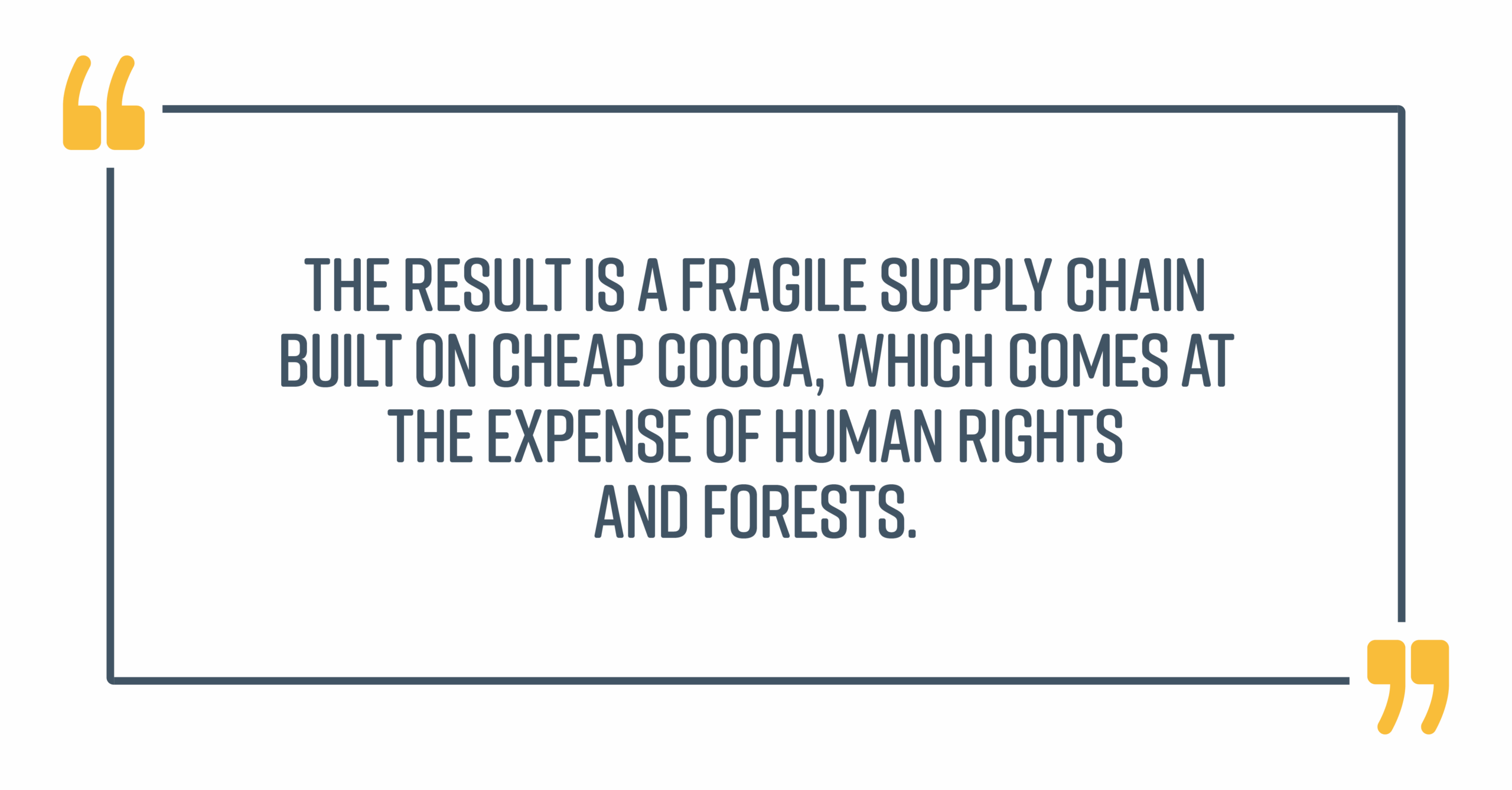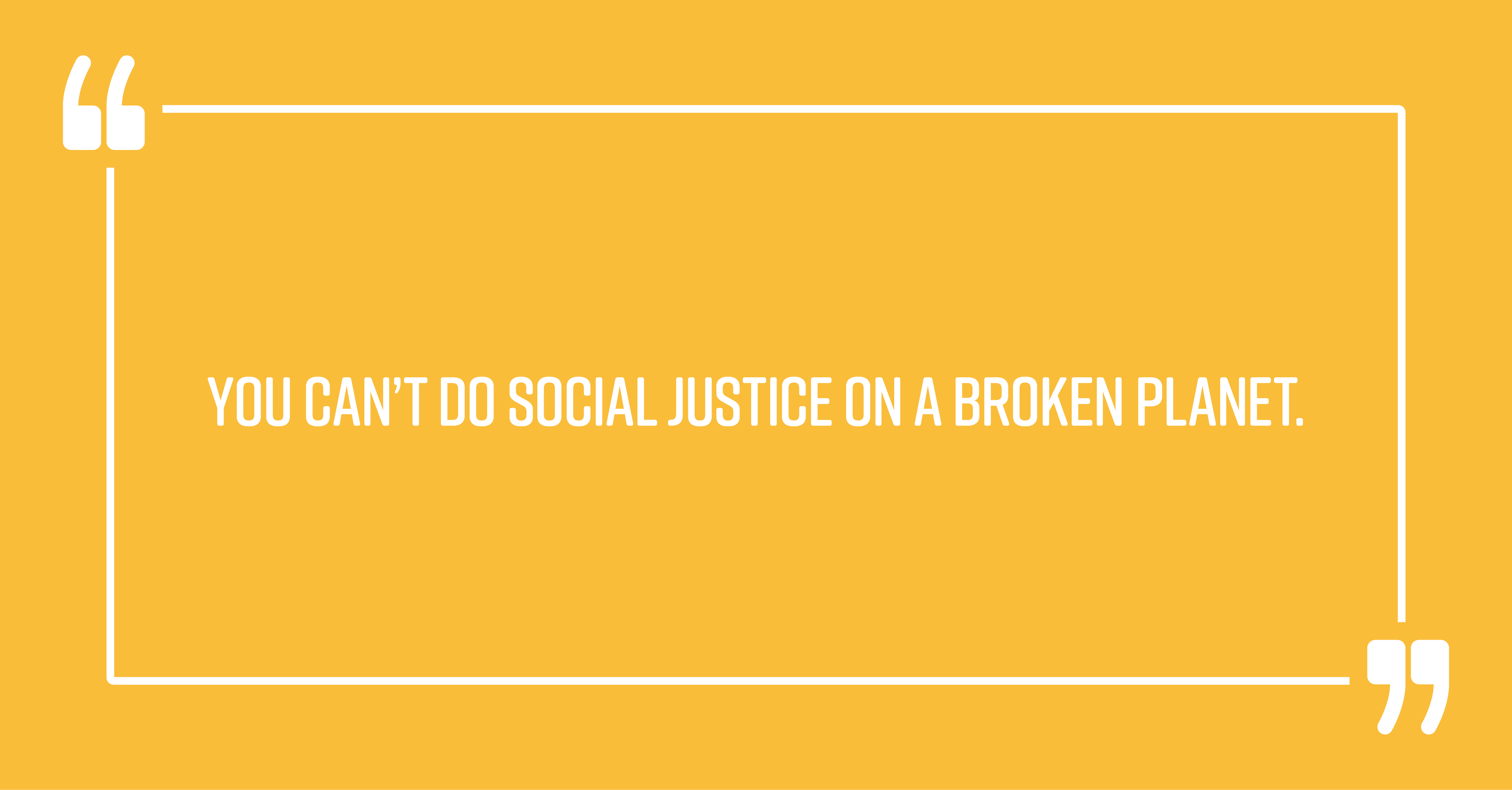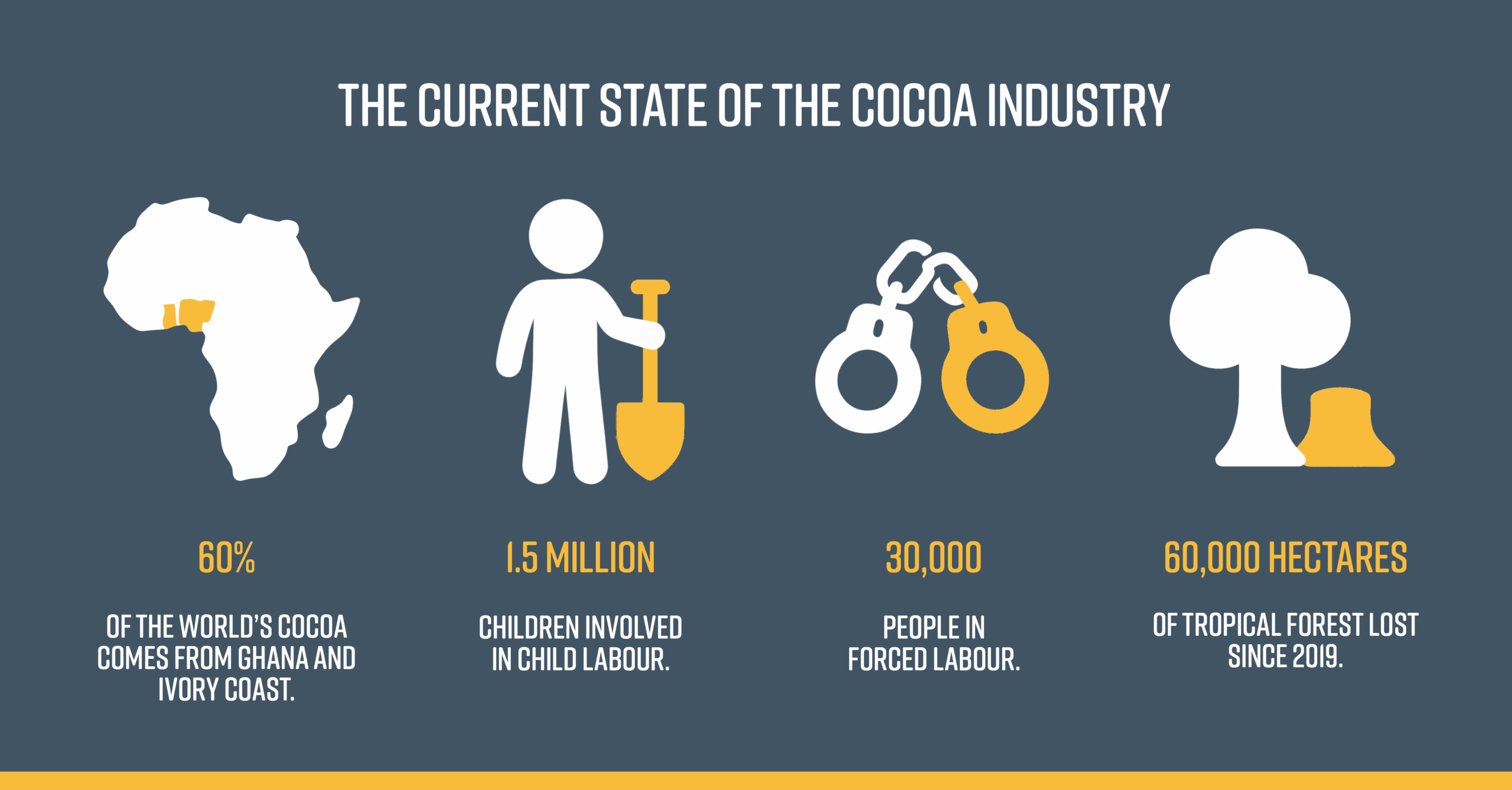Sustainability and ethical sourcing are no longer optional in modern-day procurement, and for the cocoa industry, the need to transform supply chains is crucial. Despite chocolate’s beloved status worldwide, its supply chain hides systemic issues, from child labour on farms to deforestation. The challenge and opportunity lies in building sustainable supply chains that are equitable, transparent, and resilient.
Tony’s Chocolonely, a brand paving the way for ethical production, has positioned itself as a beacon of what sustainable procurement and supply chain sustainability should look like. In this blog written by our CEO, Jonathan O’Brien, we invited Pascal Baltussen, Chief of Impact and Operations at Tony’s Chocolonely, to explore the lessons procurement professionals can take from their mission to end exploitation in the cocoa industry.
The Cocoa Industry’s Sustainability Crisis
Cocoa production is fraught with unsustainable and unethical practices. To set the scene, approximately 60% of the world’s cocoa comes from Ghana and the Ivory Coast. In these regions, over 1.5 million children are involved in child labour, and 30,000 people are victims of forced labour. Moreover, 60,000 hectares of tropical forest have been cleared since 2019 for cocoa cultivation.
At the heart of this crisis are smallholder farmers. Representing the majority of cocoa producers worldwide, these farmers face systemic vulnerabilities: inadequate pay, lack of educational support, and an absence of infrastructure. Such conditions drive illegal child labour and environmental degradation, undermining any semblance of a sustainable supply chain. According to the World Economic Forum, on average a cocoa farmer in Ghana earns about $1 per day, and in Côte d’Ivoire only about $0.78 per day – both far below the World Bank’s extreme poverty threshold of $1.90/day.
In brief, unsustainability in the supply chain is a systemic issue that drives poverty, leading to child labour, which in turn sustains poverty and inadequate education in a vicious cycle. This poverty likewise fuels environmental damage, as farmers clear more forest for new cocoa trees because they cannot afford productivity investments on existing land. This “bitter side” of cocoa production has existed for decades, highlighting a clear failure of supply chain sustainability in the conventional chocolate industry.
Understanding the Challenges for Cocoa Farmers
To grasp why initiatives like Tony’s are so critical, we must understand the structural challenges facing cocoa farmers at the base of the supply chain. These challenges explain why unsustainable practices took root in the first place. The vast majority of cocoa in West Africa is grown by smallholder farmers who cultivate tiny plots of land (often just 2-4 hectares) and live in remote rural communities. These farmers have long been economically and geographically isolated from the large multinational companies that ultimately buy their cocoa.
In traditional supply chains, cocoa passes through layers of middlemen, exporters, and processors – by the time it reaches a chocolate company, the beans from hundreds of farms are mixed together. This fragmentation has meant most chocolate brands have no visibility or direct relationship with the farmers who grow their key ingredients. This lack of transparency allows problems like child labour to remain hidden. If a company doesn’t even know which farms supplied its cocoa, it’s easy to claim ignorance or lack of responsibility for conditions on those farms.
Historically, big chocolate companies struggled to understand or intervene to what happened beyond the first tier of their supply chain, focusing only on dealings with their direct suppliers (like commodity traders or processors). Pascal explains that if firms aren’t willing to “go to the root of the problem” on the farm, it becomes very easy for them to argue that issues like child labour are not their fault, effectively shrugging off accountability to the lowest tiers of production.
Another core challenge is the extreme poverty and lack of infrastructure in cocoa farming communities. Earning under $1 a day means farmers struggle to afford basic needs, let alone investments in their farms. Many live without access to electricity, clean water, or quality healthcare. Schools in these rural areas are often few and far between, and when survival is at stake, sending children to school becomes a secondary concern. Thus, child labour is often a symptom of poverty with families needing every able hand working on the farm just to meet subsistence levels. This perpetuates an intergenerational cycle: uneducated children become the next generation of poor farmers.
Meanwhile, farmers have little leverage in the global market. They are price-takers for their crop, which is traded as a commodity. When global cocoa prices dip (as they frequently do), farmers have no safety net and see their incomes fall further. In desperation, some may clear additional forest land to plant more cocoa trees in hopes of increasing volume, inadvertently driving deforestation and ecological harm.
Crucially, the disconnect between corporate buyers and small farmers has meant that farmers’ voices are rarely heard when decisions about pricing or sustainability are made. Large companies historically set procurement specifications focused on quality and cost, not on farmer welfare. Then the farmers, scattered and lacking organization, have little power to demand better terms. The result is a fragile supply chain built on cheap cocoa, which comes at the expense of human rights and forests.

Any proper sustainable supply chain in cocoa must correct this structural issue and it must empower farmers with fair prices, provide support for education and community development, and forge direct links between producers and buyers to increase transparency.
Solutions like forming cooperatives, implementing child labour monitoring, and paying living incomes are all aimed at addressing these root challenges.
Tony’s Chocolonely – A Model for Ethical Supply Chains
When it comes to ethical sourcing, supply chain and sustainability should be considered together. Sustainable procurement strategies that ignore the socioeconomic and environmental conditions at their origin are fundamentally flawed. For cocoa, this involves moving beyond tier one suppliers and addressing the root causes of unsustainable practices at the farm level.
Tony’s Chocolonely has established itself as a pioneer in ethical sourcing. Pascal outlines the company’s five sourcing principles: traceability, strong farmer cooperatives, improved productivity, long-term relationships, and a living income reference price. These principles underpin a sustainable procurement strategy that drives genuine supply chain sustainability.
- Traceability: Knowing where every cocoa bean originates from is essential. Tony’s Chocolonely maps every farmer, recording household details, farm locations via GPS, and income data. This full visibility allows for better oversight and accountability, enabling the company to act when issues such as child labour are detected. It also means they can accurately track bean flow, ensuring full segregation throughout the supply chain.
- Supporting strong farmers: Smallholder farmers are more effective and resilient when organized into cooperatives. These groups enable collective bargaining, ensure better governance, and provide a platform for support programmes. Cooperatives are also essential partners in Tony’s Chocolonely’s data collection and child labour remediation efforts, helping maintain close relationships with farming households.
- Improved Productivity: By supporting better agricultural practices, Tony’s Chocolonely helps farmers increase cocoa yields without resorting to harmful practices such as deforestation. Higher productivity from existing land allows for greater income and reduced environmental pressure. Education and tools provided through cooperatives ensure farmers can adopt these improvements sustainably.
- Long-Term Relationships: Tony’s Chocolonely commits to buying from its cooperatives for a minimum of five years, creating commercial stability and enabling joint investment in community infrastructure and farm development. Importantly, farmers are not bound to exclusivity. This builds trust, shifts the balance of power, and empowers farmers to choose them because of mutual benefit, not obligation.
- Paying a higher price: Most cocoa farmers live below the poverty line. Tony’s Chocolonely calculates and pays a price that reflects what is needed for a decent standard of living, topping up when market prices fall short. This principle directly tackles poverty and underpins the elimination of exploitative labour practices.
Why Chocolate Isn’t Sustainable – Yet!
With rising consumer expectations and increasing scrutiny, you might assume the chocolate industry is well on its way to becoming sustainable. Unfortunately, the reality tells a different story.
Despite years of pledges from multinational chocolate producers, little has changed for the two and a half million smallholder farmers in West Africa. As Pascal points out, 1.6 million children still work on cocoa farms – 95% of them doing work the ILO classifies as illegal. These numbers have barely shifted in two decades. Why? Because the root of the problem is systemic.
One of the biggest barriers is the lack of visibility. When cocoa from many farms is mixed together, traceability is lost, making it all too easy for unethical practices to go unnoticed – or unacknowledged. This opacity allows organizations to claim compliance without confronting the deeper realities of their supply chains.
But social justice isn’t the only challenge. Environmental impact, particularly deforestation, is another major concern. In the two decades, 2.4 million hectares of forest in West Africa have been cleared for cocoa farming. And while regulations such as the EU’s new Deforestation Regulation (EUDR) are a step forward, enforcement remains inconsistent.
Tony’s Chocolonely’s approach addresses this head-on. Their farm mapping allows them to verify that their cocoa does not come from deforested land. As Pascal explains, if a company can’t prove its cocoa is deforestation-free, the carbon accounting implications are significant. That carbon burden doesn’t just affect reporting, it will reflect real environmental harm.
To take this a step further, Tony’s Chocolonely is working on carbon setting strategies, practices such as regenerative agriculture, and tree planting on cocoa farms that not only reduce emissions but will help restore biodiversity.
And let’s not forget the effects of climate change on cocoa farmers themselves. Harvest failures back in 2023, driven by El Niño, wiped out up to 30% of crops in some regions. For smallholder farmers who already operate on the margins, this is devastating.
As Pascal put it so clearly: “you can’t do social justice on a broken planet.” Climate resilience and social sustainability must go hand in hand. If a farmer can’t rely on their crop, can’t send their children to school, and can’t invest in their land, no procurement policy – however well-intentioned, will not succeed.

So what’s stopping the rest of the industry? In short: cost, complexity and culture. Many large companies are reluctant to restructure their operations or invest in models that don’t yield immediate financial returns. The tension between profit and principle remains unresolved.
The Broader Industry Implications
The reluctance of major chocolate brands to follow suit reveals a conflict between economic efficiency and ethical procurement. High costs, operational inertia, and fear of reduced competitiveness deter large companies from adopting sustainable procurement practices.
However, Tony’s Chocolonely’s Open Chain offers a viable, scalable alternative. With partners such as Ben & Jerry’s, Waitrose, and Albert Heijn already on board, the model is gaining traction. The principle is clear: real transformation requires collaboration. Read more about Open Chain here.
Sustainable procurement can no longer be viewed as a niche or a ‘nice to have’. It must become the norm. Supply chain sustainability is not simply about reducing environmental impact or meeting compliance standards, it is about rebuilding trust and justice into global trade systems.
A Blueprint for Change
The cocoa industry stands at a crossroads. As consumers grow more conscious and procurement practices evolve, there is a unique opportunity to reshape supply chains for the better.
Tony’s Chocolonely offers a compelling case study in sustainable supply chain management. Their transparent model, commitment to farmer welfare, and open-source philosophy demonstrates that ethical procurement is both feasible and impactful.
For procurement professionals, the challenge is to internalize these lessons:
- Traceability is fundamental to supply chain and sustainability.
- Long-term partnerships yield lasting change.
- Transparent data collection and usage drive accountability.
- Collaborative models can dismantle systemic exploitation.
As Pascal reflected, many of the problems in the cocoa industry are solvable. The question is not whether we can fix them, but whether we choose to.
Jonathan O’Brien, CEO of Positive Purchasing Ltd, is a leading expert on procurement and negotiation and works with global blue-chip organizations to equip them with the latest generation strategic procurement platforms and drive deep transformation of capability.
